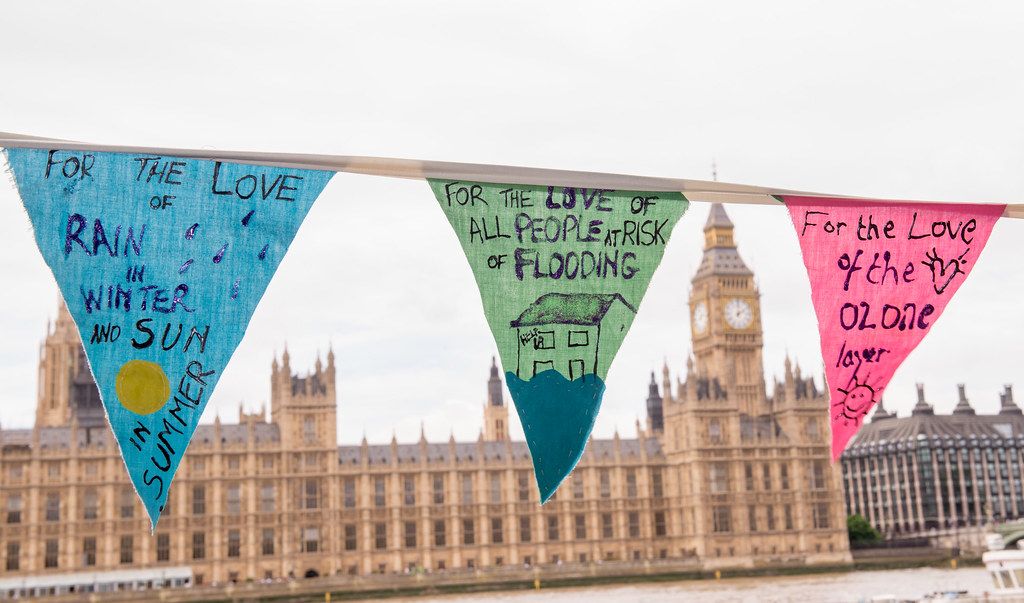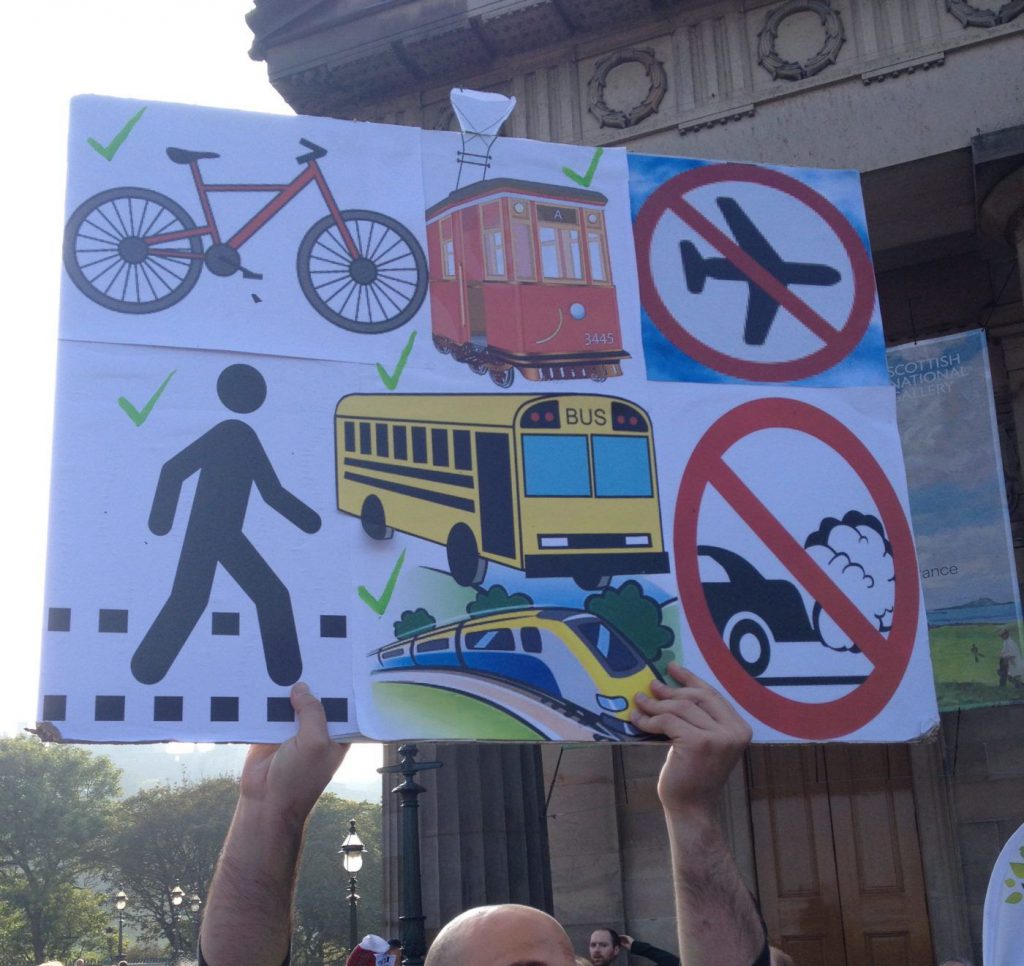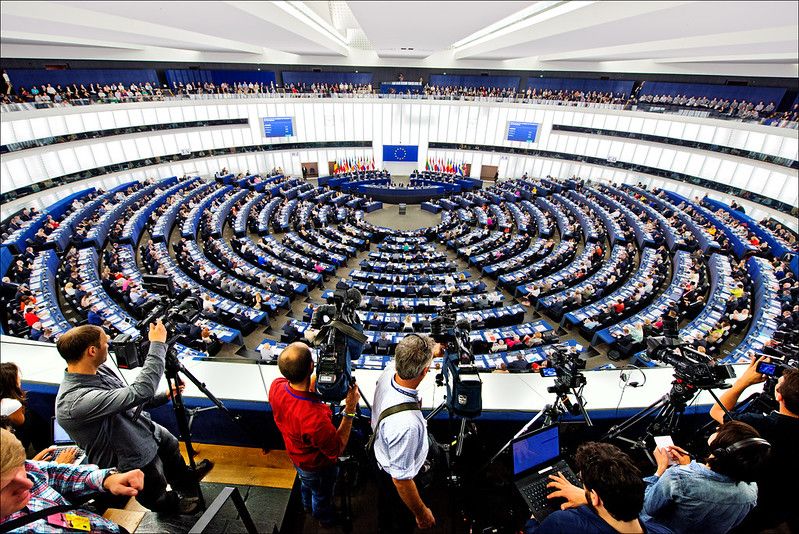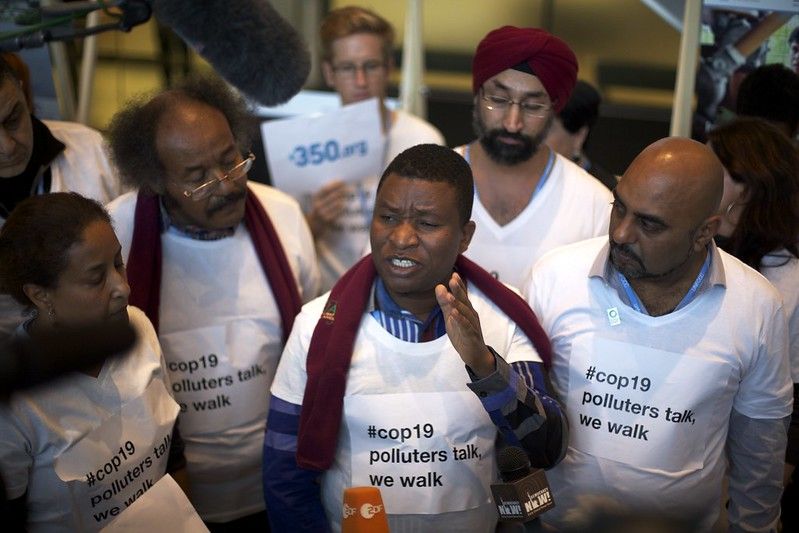
Who would the climate vote for in this election?
This General Election comes at a crucial time in the fight against the climate emergency. The next UK Government is set to lead us for almost half of the next decade, which scientists say is a crucial period in achieving the goals set out in the Paris Agreement. Friends of the Earth Scotland have been clear about what parties need to commit to to rise to this challenge, but how have they fared, and is this really the climate election that it needs to be?
While many of the powers needed to tackle the climate emergency are devolved to the Scottish Parliament, some key decisions are still made in Westminster which either directly or indirectly have consequences here.
Below we’ve assessed how the manifestos of Scotland’s biggest parties measure up to some of the key issues that the next UK Government must address to help deliver a fossil free Scotland.
North Sea Oil & Gas
We said: “The next Government needs to redirect the support given to fossil fuel industries into clean energy and delivering a Just Transition”
The UK’s relationship with the oil and gas industry is one of the most important issues the next Government has to address in order to reduce our contribution to climate change. Our ‘Sea Change’ report sets out the urgent need to redirect the current support for fossil fuels into delivering a just transition.
There are some encouraging signs that parties realise business as usual is no longer an option. The Scottish Greens, for example, explicitly commit to a phase out of North Sea oil and gas, Labour have pledged a ‘windfall tax’ on fossil fuel companies to fund a just transition, while the Liberal Democrats would phase out fossil fuel subsidies by 2025 – a key demand of the Sea Change report.
Disappointingly, neither the Conservatives and SNP, two parties of government, propose a significant change in relationship with the oil and gas industry. The SNP want to ring-fence a portion of oil and gas revenues for a ‘Net Zero Fund’, which is a positive use of money – but is based on already planned revenue. The weakest approach, though, came from the Conservatives, who choose to talk about the “long future ahead” for the oil and gas sector, oxymoronically discussing the “key role” the sector has in achieving net zero climate emissions.
Carbon capture and storage, the worryingly fashionable technology for prolonging the burning of oil and gas, features prominently in this election – with all parties except the Scottish Greens committing to at least invest in this technofix.
It is, however, a bad election for the frackers, with every party explicitly withdrawing support – and only the Conservatives adding a caveat that will not support fracking “unless the science shows categorically that it can be done safely.” However, the nuclear apologists will be pleased with support for nuclear reactors from both the Conservatives and Labour.

Transport
We said: “Politicians must commit to investing in public transport and abandon Heathrow expansion plans”
Transport is the biggest source of climate emissions for both Scotland and the whole of the UK. Our current approach, with billions pumped into aviation and road building, cannot continue. Instead we need to see the Government making trains, buses, cycling and walking more accessible, cheaper and more reliable. Taking sustainable transport needs to be the more attractive choice, leading to fewer cars on the roads and unnecessary flights eradicated.
Of all elements of climate policy, this appears to be the area parties are taking most seriously, with significant improvements to trains and bus networks being touted across the board. The Conservatives would reopen “many” of the lines shut by Beeching, and develop a superbus network offering “low fares”. The SNP want to cut rail journey times between Scotland and London, and give the Scottish Government the full powers to run Scotland’s rail network.
Public ownership is a common theme for Labour too, who pledge public ownership and electrification of railways. Labour will support local authority owned buses, with reinstated bus routes and free bus travel extended to under-25s where they are run by public sector. The Lib Dems, meanwhile, offer a more novel approach to transport ownership, offering a wider range of organisations, including not for profits, the chance to run train services (keep an eye out for FoESRail if this happens). The Scottish Greens take the most direct action to transition from cars to public transport, proposing to use Vehicle Excise Duty to invest in sustainable transport, including free bus travel for under-21s.
Away from public transport, this election is set to deliver an uncertain future for plans to expand the UK’s biggest carbon polluter, Heathrow airport. The Lib Dems and the Greens have strongly opposed the expansion in their manifestos, while the SNP have avoided mentioning airport expansion. Labour have taken a timid approach, mentioning a number of environmental tests any airport expansion must pass to get their support, without commenting on Heathrow specifically. The Conservatives also sidestepped giving outright support for the project – pledging “no new public money” but also offering a concerning view that Parliament, in principle, already supports it.
In more positive news for the environment, and worse news for the aviation industry, the Lib Dems have become the first party to put a frequent flyer levy on the table. The structure may just represent tentative first steps, as it would only impact those taking more than two return international flights a year and does nothing to tackle domestic flights, but there is potential for this to be developed into a significant change in our relationship with flying.
A whole Government approach
We said: “The next UK Government must commit all Government Departments to tackling the Climate Emergency”
Historically, climate change has ended up an issue dealt with in one department of Government but, like any emergency, a climate emergency requires a response in every area of Government. Particularly, we need to see a change in the tax system to reflect the damaging impacts of particular activities. Steps must be taken to end to the sale of polluting products like gas boilers and fossil fuel cars, as well as broader reforms such as energy being produced by a public company and treated as a public good.
The way we currently heat our homes, mostly with gas, is a significant contributor to climate change. Promisingly, improving energy efficiency of new builds has been a common theme across manifestos – from the Lib Dem commitment to make all new homes ‘passivhaus’ standard by 2025, Labour’s pledge that buildings will be built to “zero-carbon standards”, and the SNP wanting all new homes to use renewable or low carbon heat from 2024.
While this is good news for new builds, they only count for about 1% of homes every year and there are fewer concrete targets for energy efficiency standards of existing homes. There is plenty of promising support for improving energy efficiency – investment in energy efficiency from the Scottish Greens and Conservatives, tax incentives from the SNP and free retrofits for low income households alongside an increase in minimum efficiency standards for private rental under the Liberal Democrats. Labour perhaps come closest with their pledge to upgrade “upgrade almost all of the UK’s 27 million homes to the highest energy-efficiency standards”, but it’s disappointing that no party has gone as far as setting a definitive target date by which all homes should reach higher energy efficiency standards.
Beyond heat, some of the interesting proposals include steps from the Lib Dems and Labour to make companies on the UK stock exchange take their climate obligations seriously. The Lib Dems would require companies to have “Paris agreement-compliant targets”, while Labour would de-list companies who “fail to contribute to tackling the climate and environmental emergency.”

Brexit & the environment
We said: “The next UK Government must protect environmental standards during Brexit”
While the latter stages of this election have begun to move on from Brexit, the issue has loomed large in the background. We’ve been clear that there is no good Brexit for the environment, and leaving the EU poses a severe threat to the protections and routes to environmental justice that we currently receive through EU membership.
Despite Brexit’s prominence in campaigns, there’s been disappointingly little media focus on what happens to environmental protections if we do leave the European Union. The SNP manifesto reiterates the party’s existing commitment to maintain current and future EU standards and regulations in key areas, and the Scottish Green parties call for these protections to be devolved to Holyrood if Brexit does happen. The Conservatives claim that the future relationship with the EU will allow us to raise standards in environmental areas – though it’s worth noting that those standards could just as easily be weakened.

Credit: Luka Tomac /FoEI
UN Climate Conference in Glasgow
We said: “The next UK Government must ensure the UN Climate Conference has Global South voices at its centre & is free from polluters”
Next year, the UK Government will be the host of the UN’s Climate Conference, in Glasgow. These negotiations should be a place to emphasise the urgency of the climate crisis on a global stage. Too often the views of those who suffer the impacts of climate change the most are marginalised, replaced with corporate lobbyists and polluters buying their way into the conference.
As host, the UK Government will have the chance to shape this and future Conferences, ridding the conference of corporate interests and instead making sure world leaders hear the voices of people from the Global South.
Only the Conservatives and Labour mention the Glasgow Conference in passing, with the Conservatives wanting to use the event to ask other nations to match their doubling of International Climate Finance. Labour, on the other hand, want to use the conference as part of an effort to deliver more ambitious global climate targets. Both of these are important, but no party has addressed the fundamentals of how they, as host, will ensure that barriers are removed for delegates from the Global South, and that COP doesn’t just become a networking opportunity for our biggest polluters.
So how do the election promises stack up?
Manifestos always come with a word of caution – they’re the political window dressing, containing the shiniest pledges designed to draw attention and avoid controversy, and it’s often the things that parties omit which are of most interest.
There are positive signs. Climate change is more prominent across manifestos than it has been in recent years, thanks largely to the wave of activists making it impossible for parties to ignore. Parties are also finally realising that climate action will bring broader benefits across society, with cleaner alternatives for how we travel and how we heat our homes.
But the omissions are stark. While a just transition and green new deal are features of a number of manifestos, only one party has committed to phasing out oil and gas extraction. Domestic aviation, despite long being known as a heavy polluter, gets off lightly. There is little clarity of what protections for the environment we will have if Brexit, the supposed key issue of this election, happens, and parties have avoided setting out how they would use their position as chair of COP to kick out big business and promote voices from the Global South.
Is this the ‘climate election’ that we needed? It’s a good start, and some parties clearly take the need for radical transformation more seriously than others, but the time for getting started and tinkering round the edges has already passed. If this all ends in a hung parliament, negotiations must include strengthening of climate commitments – not watering them down. Whoever forms the next UK Government will have to fill the gaps in their manifesto, and make the start of a just transition to a zero-carbon society a priority as soon as they’ve set foot in Downing Street.
The UK General Election will take place on Thursday 12 December 2019. The BBC have a tool to compare manifestos available here
